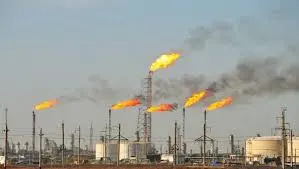Following World Bank’s disclosure that Nigeria recorded the second highest global increase in gas flaring in 2024, while Iran had the highest increase, a former Minister of Power, Prof. Barth Nnaji, the Chief Executive Officer/Managing Director, DEEP Shores Energy Limited, Nneka Zainabu Obi, and Acting Managing Director and Gas Asset Manager of Neconde Energy Limited, Engr. Chichi Emenike, have called for substantial reduction in the wastage.
They spoke in separate interviews with New Telegraph over the weekend. According to a World Bank’s Global Gas Flaring Tracker Report, Nigeria recorded a 12 percent increase in gas flaring volume in 2024, marking the second-largest rise globally. It said: “Nigeria experienced a 12 per cent increase in flaring volume in 2024, the second largest increase globally. With oil production rising by just three per cent, flaring intensity increased by 8 percent.
This marks the second consecutive year of rising flare levels in Nigeria.” The report added that flaring at oil and gas facilities operated by the Nigerian National Petroleum Corporation Limited (NNPC Ltd) and several smaller companies, likely with limited expertise or funding for gas utilization, accounted for 60 per cent of Nigeria’s gas flaring and 75 per cent of the increase in 2024.
It said: “The largest increases in flare volumes in 2024 occurred in Iran, Nigeria, the United States, Iraq, and Russia (in order of the flare volume increase). Together, these five countries accounted for 4.6 bcm of the additional gas flaring. In addition to increases in flare volume, Nigeria, Russia, and the United States also increased their flaring intensity in 2024.”
Nnaji, who is also the Chairman of Geometric Power, said that the effect of gas flaring was quite significant and had to stop. He said: “Gas flaring has to be reduced. My belief is that we should reduce gas flaring to zero. There should be no reason to be flaring gas. If there are some constraints, yes, but otherwise gas flaring should be reduced to zero so that the gas can be channeled to use in the country.”
On her part, Obi noted that gas flaring was a problem in Nigeria and that the country had resultantly lost a lot of revenue. She said: “It is a long road. So, it’s a give and take thing. We have to flare this gas. During the production process, we have extra gas that comes today. So, for us to be able to extract that gas. At that point, because infrastructure to be able to capture that gas is not in place.
So, we can’t stop production of crude, because we already know, we have to keep going. Until we get to that point where infrastructure meetings need energy transition. If you don’t have it in place, this thing has to keep going on. So, until the government realizes the need to have this, it’s not a small investment. It’s not off the shelf. “So, it is a commitment by our government to say ‘okay, we really want to do this, and then put the right policies and structure in place.
Then we can talk about enabling the environment. Not just saying, what are we actually doing about it. It’s not a disservice. It’s coming to a point where we should stop talking too much. We all know what the issue is. We know how to go about it. But guess what? We need an enabling environment by the government, collaborating with the private sector, to ensure we get a positive finish.
See how that guy is directing. I mean, it’s not revenue generating, though. That’s what they are thinking, though. “You say you want investments. How? You can’t have your business and then give it away. Exactly. Our former minister spoke about it earlier, when he came about that next thing. Because there is a rumour that there is a civil war. They are here in Nigeria. So people are basing their charging of their power on that assumed subsidy, which nobody has paid.
That’s why it’s growing. So a lot of times people talk about the outlay and the background of what is happening. It’s different. And those things keep piling up. Until we start being true. Until we start doing the right thing. Until we start being intentional about moving our country, Nigeria, forward. We all know what’s the truth. “The next item we have in our business is no other than the immediate and final discussion and our new business. that will go into the maintenance of the equipment. So as time goes on, we see that deterioration.
Equipment that needs to be maintained and replaced, that is not being done as it’s supposed to be. So there are delays in infrastructure development as a result of that.” Emenike said there are so many moving parts to the discussion about gas flaring. She noted that gas flaring as a responsible nation, as people want to do business in a sustainable manner, is not the right thing to do.
She said: “However, I mean, even for us on the upstream, there’s something we used to say. Government is asking for crude production. You know we’re not meeting our objectives because there’s a struggle. We have done that. Yes, but you need to sustain it. To sustain most of it, you need to keep drilling wells. As you’re drilling wells, don’t forget, there’s an associated gas that is coming with it.
“Now, the infrastructure for that associated gas is not infrastructure that is picked off the shelf. It has to be produced. These are long-lived items, like we call them, LLIs. The infrastructure that needs to be ordered, that needs to be engaged, needs to be done for. There’s the whole EPCI process. There’s one leg that is inside gas flaring. It’s shifting me. There are many things that we can do. Don’t forget, some of these assets that some of us have, they are old assets, old assets that were owned by the IOC.





